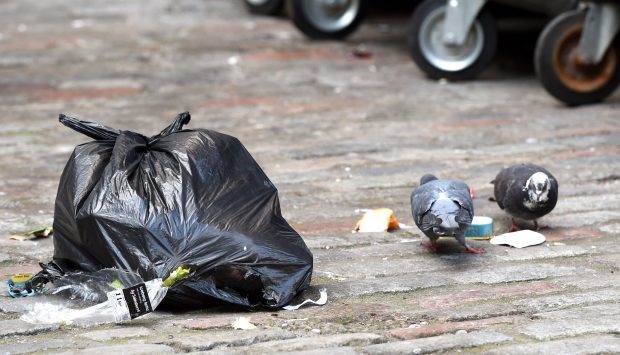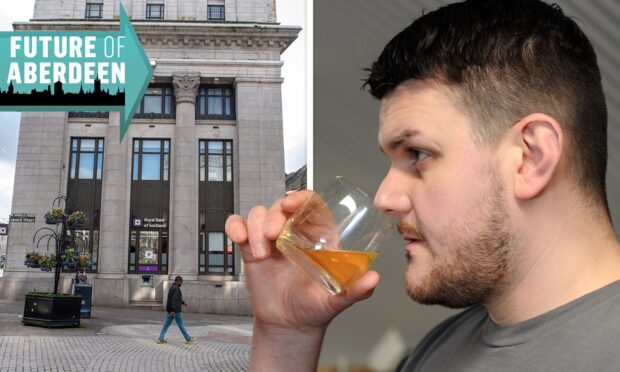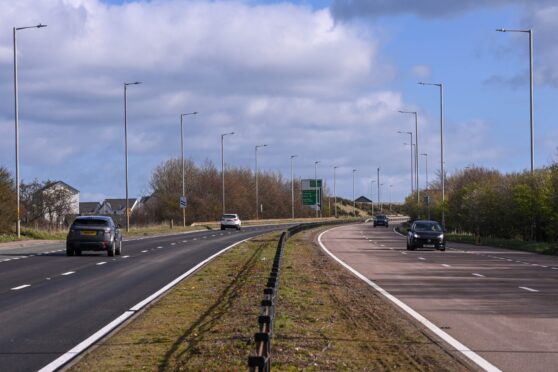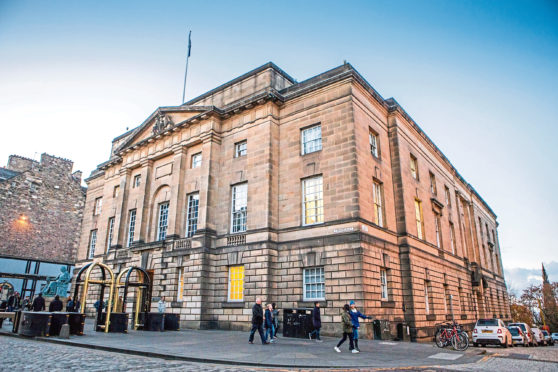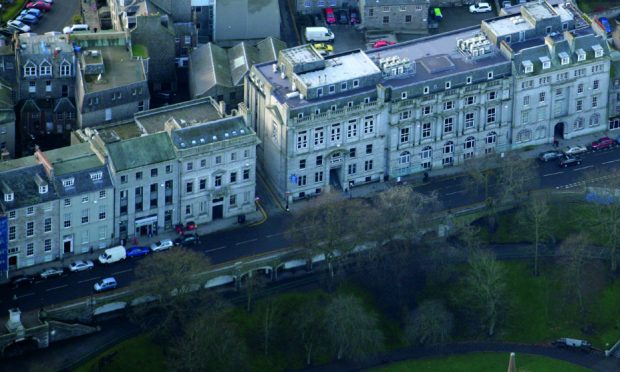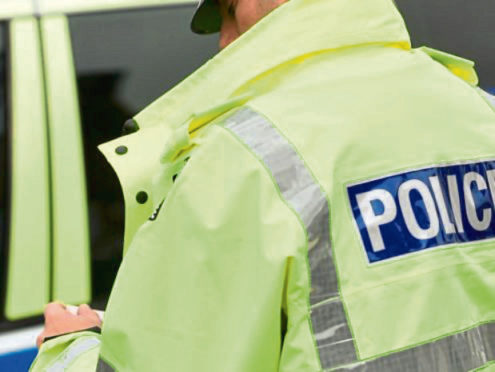Careless litter louts have cost north-east taxpayers almost £20million over the last four years.
New figures show Aberdeen and Aberdeenshire councils have been forced to pay a total of £19.6million on street cleaning since 2013.
In a time where local authorities across Scotland are forced to tighten public purse strings, Aberdeenshire Council had to spend £10.7million on cleaning up rubbish while the city authority paid out £8.9million.
The cash spent covers the costs of picking up litter, combating fly-tipping, the upkeep of street sweeping machinery and more.
And the city’s finance convener Willie Young said there is a direct correlation between the amount of rubbish in the streets and the increasing costs to the taxpayer.
Mr Young said if people stopped littering there would be more money available to spend on other resources like roads and schools.
He said: “What happens in this city, as well as elsewhere, is people drop litter, they drop gum, they don’t use bins and of course there has to be a cost to that.
“There is an absolute connection between how much of this rubbish has to be picked up and how much it’s costing the council, and the taxpayer.
“When you’re faced with a budget, you’ve got to look at what you want to spend your money on.
“Of course people want more money spent on social care, our children’s education, road improvements and other hugely important causes – but if we didn’t have to spend so much on cleaning up the city, we could re-align more of our budget to these things.
“If these people simply put their rubbish in the bin, it could save us a lot of money in the long term – they’re not helping the situation at all.”
Aberdeenshire Democratic Independent Green Group (DIGG) councillor Paul Johnston said one way to reduce the problem is to join anti-littering organisations.
He said: “There are groups like the Aberdeenshire Litter Initiative and others who work hard to counteract this issue through litter picking exercises all across the north-east.
“If everyone picks up just a little bit of litter, not only will it help to save the taxpayer money, it will also help to change attitudes towards littering.
“But we’re wasting money, because we simply shouldn’t have dropped the litter in the first place – and more needs to be done to solve the problem.”
Derek Robertson, chief executive of environmental charity Keep Scotland Beautiful, said action must be taken to change attitudes towards littering, and that the responsibility lies with the individual.
He said: “Keep Scotland Beautiful reported in 2016 that, for the first time in 10 years, Scotland’s local environmental quality is in decline.
“Local authorities are striving to meet and raise standards in the face of cutbacks and adverse circumstances.
“However, littering is expensive – in terms of costs to our councils, and at a cost to our wildlife and environment.
“We need strong leadership and intervention, and for people to show respect for their own environment and change their littering behaviours.
“Each piece of litter on our streets and in our countryside has been dropped not by the manufacturer, distributor or retailer of the product – but by the consumer of it.
“Littering behaviour is an individual manifestation of the disregard of those who just don’t care about our environment.”
“Scotland cannot continue to neglect such an important issue.”
